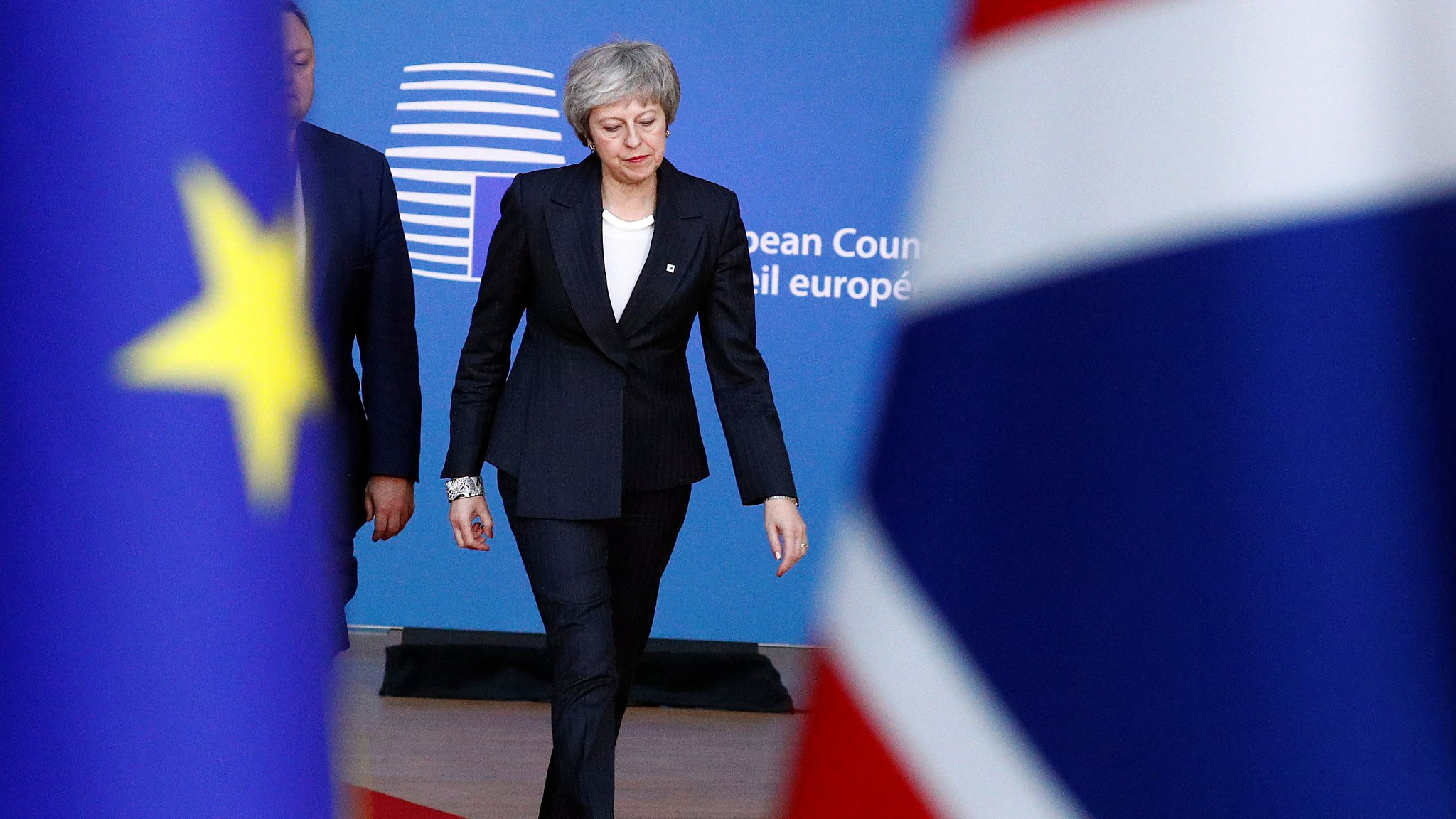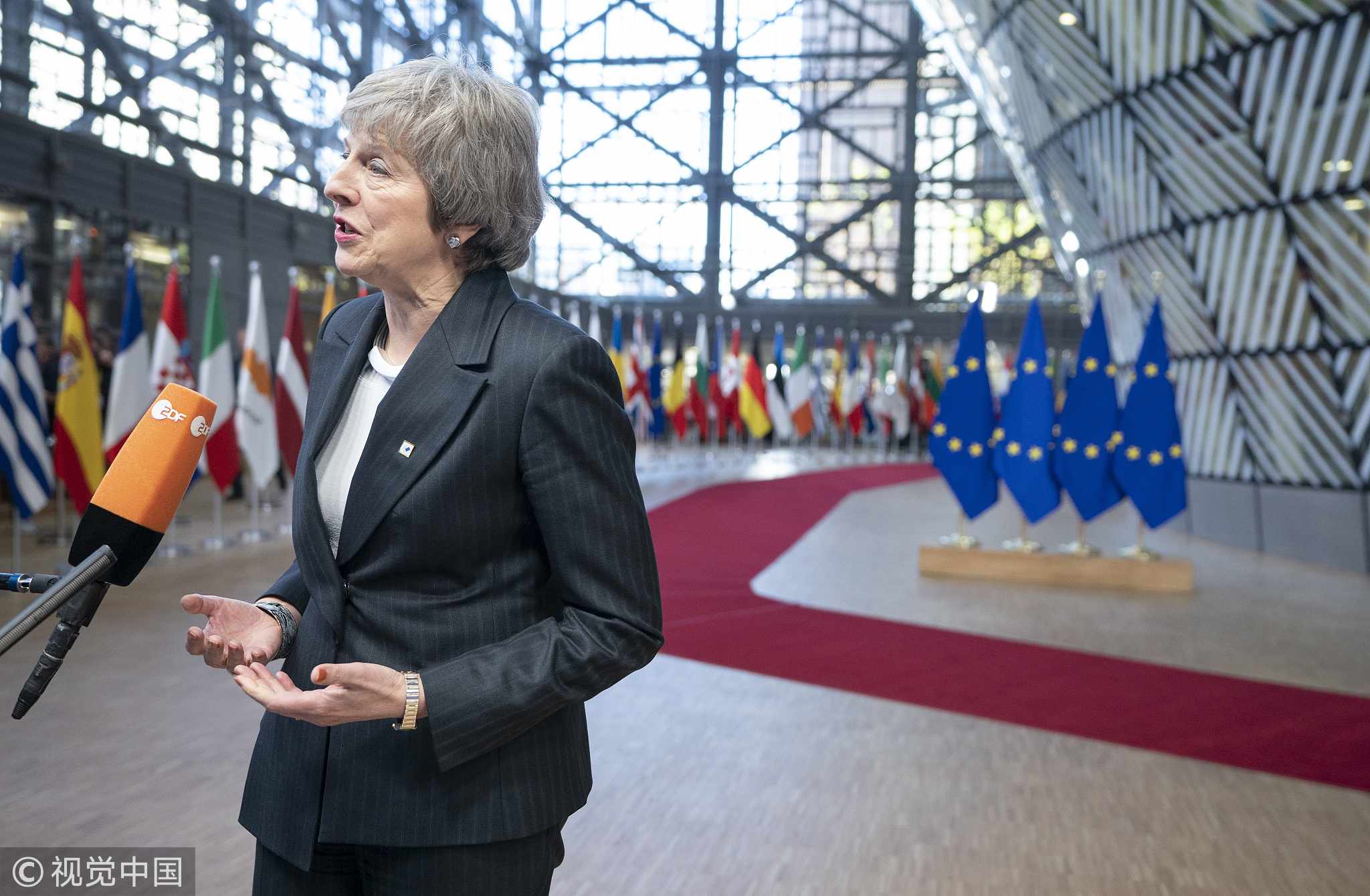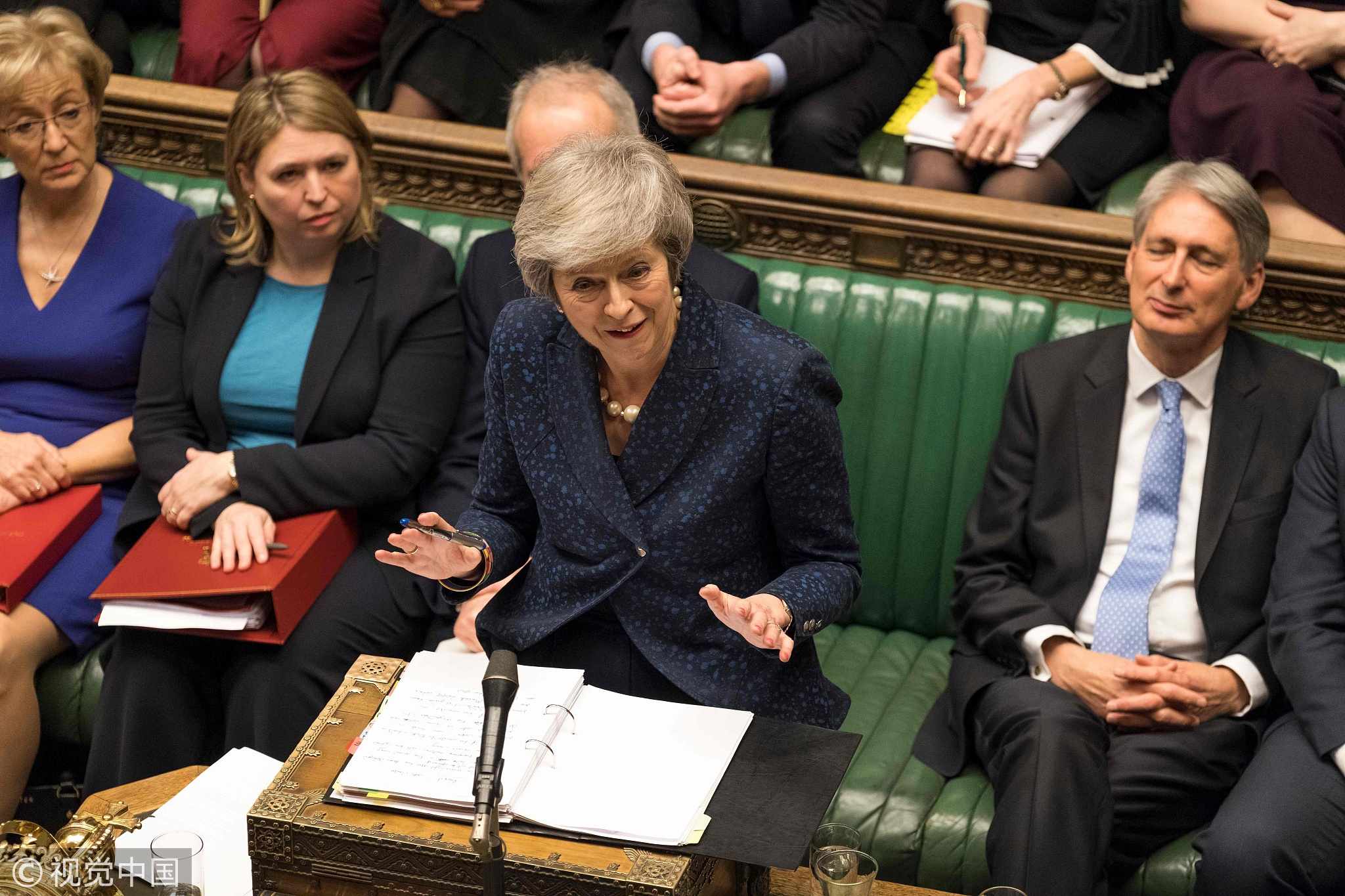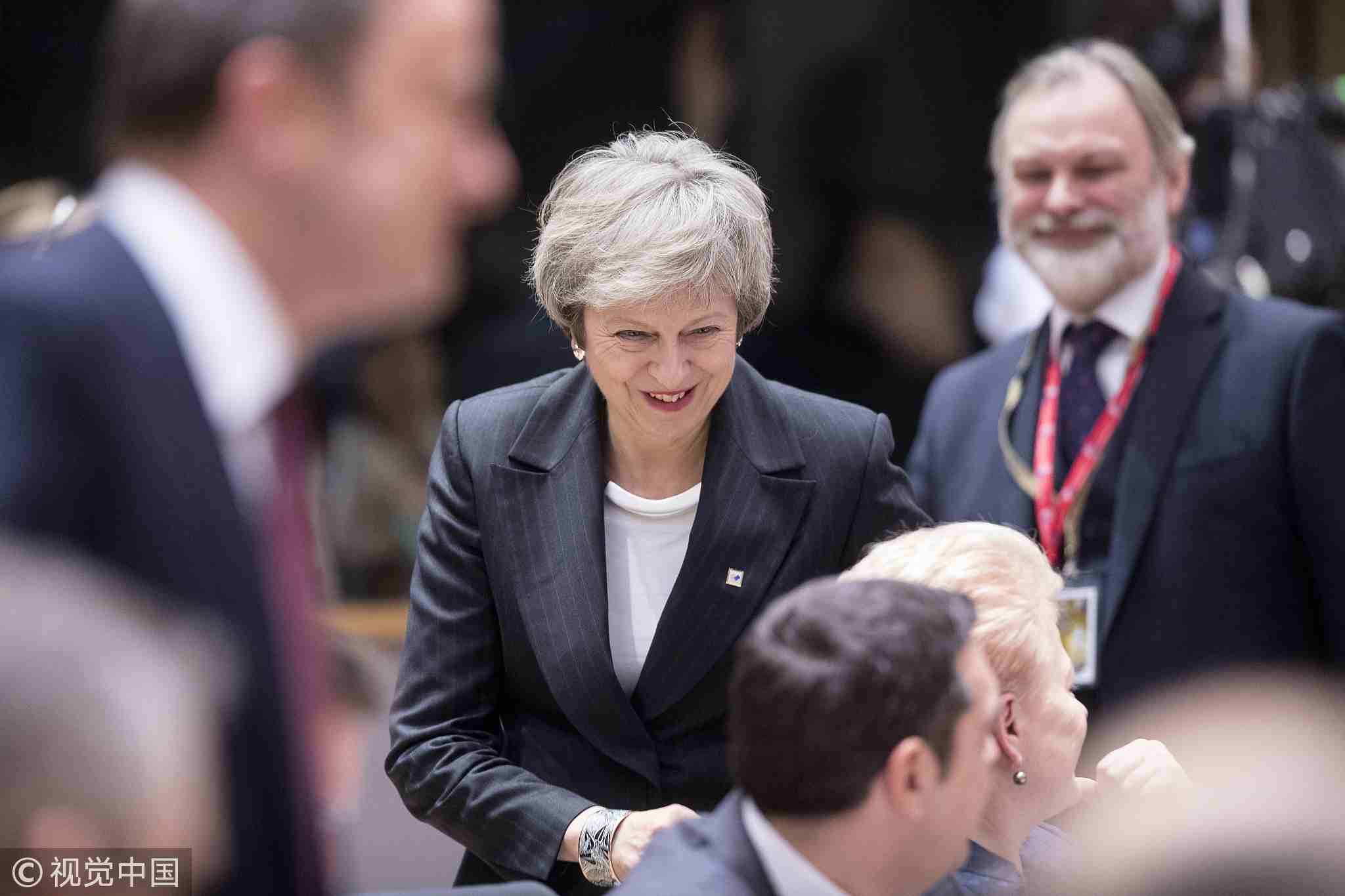
Opinions
13:36, 14-Dec-2018
Opinion: Brexit debacle casts shadow over May's leadership
Updated
12:42, 17-Dec-2018
Matt Bevington

Editor's note: Matt Bevington is a policy researcher at the UK in a changing Europe. The article reflects the author's opinion, and not necessarily the views of CGTN.
Theresa May came through her leadership challenge yesterday, but she is undoubtedly damaged. Almost two in five of her own MPs voted against her in the secret ballot. Either two-thirds of her backbenchers dissented or some of her own government ministers did so – either way, it was a quiet blow that will ultimately prove fatal.
May has so far refused to contemplate any alternative to her deal – whether that be changing her negotiating red lines, holding a general election or even having another referendum.
Yet there remains a vanishingly small chance that she can navigate it through parliament, even with any minor tweaks the EU might be willing to make. Another alternative is inevitable, but there will have to be a new prime minister to do so.
One escape route to a new leader has now been closed off. Internal Conservative Party rules mean she cannot now be challenged within her party for another year. But other options remain.

UK Prime Minister Theresa May speaks to journalists as she arrives at a European Union (EU) leaders summit in Brussels, Belgium, on Thursday, December 13, 2018. /VCG Photo
UK Prime Minister Theresa May speaks to journalists as she arrives at a European Union (EU) leaders summit in Brussels, Belgium, on Thursday, December 13, 2018. /VCG Photo
Even now, if a sizeable chunk of her Cabinet implored her to go, she would be left with little option but to acquiesce. On top of that, if she loses the vote on her Brexit deal when it eventually comes by a substantial margin – say more than 100 votes – the pressure on her to resign would be irresistible.
Thus, the idea that she is now immune for the next twelve months is plain wrong. There is a big difference between party procedure and the political reality facing a leader.
UK prime ministers are rarely defeated outright. After all, Margaret Thatcher won the first round of the leadership election against her and looked in a strong position to prevail in the second round before she resigned. Ultimately, it was not the procedure that did for her – it was politics.
A change of leader could also be brought about with the help of the opposition. The first, less likely route is that Theresa May could call a no-confidence vote in Parliament in her own government in order to pose her own MPs with an impossible choice: support May or risk a general election that could put the opposition in power.

UK Prime Minister Theresa May speaks during the weekly question and answers session, Prime Minister's Questions (PMQs), in the House of Commons in London on December 12, 2018. /VCG Photo
UK Prime Minister Theresa May speaks during the weekly question and answers session, Prime Minister's Questions (PMQs), in the House of Commons in London on December 12, 2018. /VCG Photo
The second, more likely option is that Jeremy Corbyn submits a statement of no confidence in the prime minister. Other opposition parties such as the Scottish National Party and the Liberal Democrats have already said they would support such a move.
Crucially, though, to get a majority against the government would require some Conservative MPs to vote against their own government. Despite the visible discontent in the Conservative Party, they remain united in their fear of a Labour government, which makes this option unlikely to succeed either.
Any impending threat of no deal would change things though. If May – or any prime minister for that matter – cannot get her deal through parliament and the UK heads towards a no deal outcome, support would crystallize across parties to oust her government. That would, after all, be MPs' only guaranteed option.
It is one thing to get rid of May, yet quite another to agree on an alternative course.
The procedure will be crucial when an alternative to May's deal is eventually sought. Let's take another referendum first. This is fraught with procedural problems.

UK Prime Minister Theresa May arrives for the first day of a two-day EU summit in the Europa, the EU Council headquarter in Brussels, Belgium, December 13, 2018. /VCG Photo
UK Prime Minister Theresa May arrives for the first day of a two-day EU summit in the Europa, the EU Council headquarter in Brussels, Belgium, December 13, 2018. /VCG Photo
Even if there is a majority of MPs in parliament that support one, without a government willing to pass the necessary legislation to make it happen it can't. And any Conservative leader after May would most likely be more pro-Brexit and thus just as anti-referendum as she is.
A general election is more likely because the same constraints do not apply. A majority of MPs could pass a statement of no confidence in the government, most likely if it tried to pursue no deal. This would trigger a process that leads automatically to a general election unless another government can be formed within two weeks of that statement.
There is a firm majority in the Conservative Party who does not want Theresa May to lead them into another election after the debacle in 2017. Even if she were in place when a no-confidence vote were passed in parliament, there is no chance of her leading her the Conservatives into it.
Mrs. May won the vote yesterday but she did not win the confidence of her party. Rather, she gained a short period of reprieve. But just like the Brexit process, the clock is ticking and she is on borrowed time.
(If you want to contribute and have specific expertise, please contact us at opinions@cgtn.com.)

SITEMAP
Copyright © 2018 CGTN. Beijing ICP prepared NO.16065310-3
Copyright © 2018 CGTN. Beijing ICP prepared NO.16065310-3